Dogs are not just pets. They are our lives. We dog owners always try to ensure their well-being. When it comes to trying new foods or fruits for our furry friends, we actually think twice before feeding. We must also know the health benefits and potential health risks and how to feed the item to minimize any risks safely. Do you want to treat your Dog with a sweet and delicate flavor, Scallops?
In this article, we will answer the question, “Can Dogs Eat Scallops? Are Scallops Safe For Dogs?” So, Let’s Dive deep into it.
What are Scallops?
Scallops are shellfish found in vast seas around the world. They taste sweet, with a tender texture and delicate flavor, which make them an excellent food for humans. But when it comes to feeding dogs, Are they safe? The short answer is “YES, Scallops are safe for dogs.” Personally I feed Scallops to my Shiloh Shepherd and Golden Mountain Doodles occasionally. They are enjoying Scallops without having any problems.
Benefits of Feeding Scallops to Dogs
While choosing Scallops for your Dog, you should know their benefits. This will help you to solidify your decision.
1. Rich Source of Protein
Scallops are an excellent source of high-quality protein. By including Scallops in your Dog’s diet, you can ensure the protein they need to thrive. However, I only feed scallops twice a month despite it being a great source of protein. Rather, you can say I feed scallops as an occasional treat.
Protein is an essential element of a dog’s diet. It ensures the Dog’s growth, development, and overall well-being. It also repairs the tissues, mussels, and organs in dogs.
2. Omega-3 Fatty Acids
One of the best benefits of adding Scallops to dogs’ diets is that they are a good source of Omega-3 Fatty Acids. There may not be any dog owners who don’t know the benefits of omega-3 fatty acids for dogs. Omega-3 Fatty Acids help develop healthy skin and shiny coats for dogs. They are also beneficial for dogs suffering from skin allergies, arthritis, or other inflammatory conditions. Also, you can try Tilapia and Sushi.
3. Vitamins and Minerals
Scallops are also a good source of vitamin B-12 and Minerals like Magnesium, Potassium, and Zinc. You should choose Scallops
Benefits of B-12: Supports Nerve System and Maintain Healthy Red Blood Cells (RBC)
Benefits of Minerals: Bone Health, Immune System and Muscle Function.
4. Low Fat and Calories
Scallops are low in fat and Calories, making them an awesome choice for dogs with excessive weight problems and calorie restrictions.
For instance, My Long-Haired Chihuahua has an excessive weigh of 11 Kg. Therefore, I added Scallops to his diet due to its low fat and calories. So, If your Dog is undergoing excessive weight problems, you can consider Scallops for your Dog’s diet.
Potential Health Risks of Scallops
While Scallops offer numerous health benefits to dogs, there are some potential health risks associated with it. However, it solely depends on individual dogs; many dogs can eat without having any trouble, and some of them may suffer from following health issues.
1. Allergic Reactions
Like humans, dogs can also have allergic reactions to shellfish such as Scallops. If your Dog is allergic to some foods and has a sensitive stomach, be sure to seek suggestions from a veterinarian to prevent any allergic reactions. In some cases, Allergic reactions can cause death in dogs. However, I never find any of my furry friends suffer from Allergic Reactions. Though it solely depends on individual dogs.
Symptoms: Swelling, Difficulty Breathing, or Digestive Upset.
2. Foodborne Illness
If you feed your Dog raw or uncooked Scallops, it may cause Foodborne Illnesses because Raw Scallops contain harmful bacteria such as Salmonella or Vibrio. To reduce the chance of Foodborne Illness, I ensure feeding well-cooked Scallops only. Basically, my mom made Scallops with her own hand, that prevents my furry friends from Foodborne Illness.
Symptoms: Vomiting, Diarrhea, Abdominal pain, Fever, and Lethargy.
3. Digestive Upset
If you feed your Dog Scallops in large quantities, there can be a chance of Digestive Upset. Also, some dogs have difficulties digesting shellfish, so you should ensure that you are feeding Scallops in the right amount. As I mentioned earlier, I feed Scallops twice a month as an occasional treat, and of course, I maintain the right amount.
How did I determine the Right Amount of Scallops?
When I fed Scallops for the first time, I only gave a little piece and observed for any health issues. As there were no health issues, I slightly increased the amount of Scallops until there were no signs of issues and got the right amount.
Symptoms: Diarrhea, Vomiting, or Bloating.
4. Salt Toxicity
Scallops contain high sodium compared to other shellfish. Also, when they are cooked, we use salts. So, make sure you are choosing low-sodium Scallops for your dogs and avoid additional salt or seasoning because excessive salt may cause sodium ion poisoning or Salt Toxicity.
I have mentioned that the Scallops I feed to my Dog are made by Mom. She knows the quantity of each ingredient, leading to healthy and safe feeding.
Health Issues: Dehydration, Electrolyte Imbalances, and Hypertension.
How to Safely Feed Scallops to Dogs
1. Well-Cooked Scallops
You should feed your Dog well-cooked scallops to prevent digestive issues in dogs. Because it can be deadly to feed raw or undercooked Scallops to your Dog.
2. Choose High-Quality Scallops
Choosing high-quality Scallops is the key to ensuring your Dog’s overall well-being and preventing problems such as Dehydration, Electrolyte imbalances, hypertension, and digestive upset. Choose Scallops that offer low-sodium and salt preservation. Choose fresh ones and avoid the Scallops that seem to be spoilage. This will ensure your Dog’s well-being.
3. Feed Scallops in Moderation
Maximum dogs are food-motivated, meaning they will eat everything that you offer and feed. Excessive feeding of Scallops is deadly for dogs. It can cause health issues such as Diarrhea, Vomiting, and Digestive upset, which can lead to death. So, feeding in moderation is the best practice.
4. Monitor Your Dog
After Feeding your Dog Scallops for the first time, you should observe your Dog closely to look for any health problems like Allergic Reactions, Foodborne Illnesses or Digestive Issues. Immediately seek the help of a veterinarian if you see any of these symptoms to avoid further suffering.
5. Slowly Introduce
Introduce scallops slowly to your Dog to reduce potential health issues. Sudden large amounts of feeding can cause problems like Digestive issues and Allergic Reactions.
6. Seek for veterinarian
No matter what food you try for your Dog, the best option is to seek veterinarian instructions, which are effective as they are more personalized and understanding. This will ensure the best safety for your Dog.
More Dog-Friendly Foods
If you want to feed more human foods and use them as a treat to your Dog, you can consider the following foods:
Summary
After going through every step, we have the answer to the question “Can Dogs Eat Scallops? Are Scallops Safe for Dogs?”. The answer is: Yes, Yes!! However, to avoid potential health risks, you should follow the advice that I have given in the article. Pads Of Paw team wishes you all the best and happy parenting.
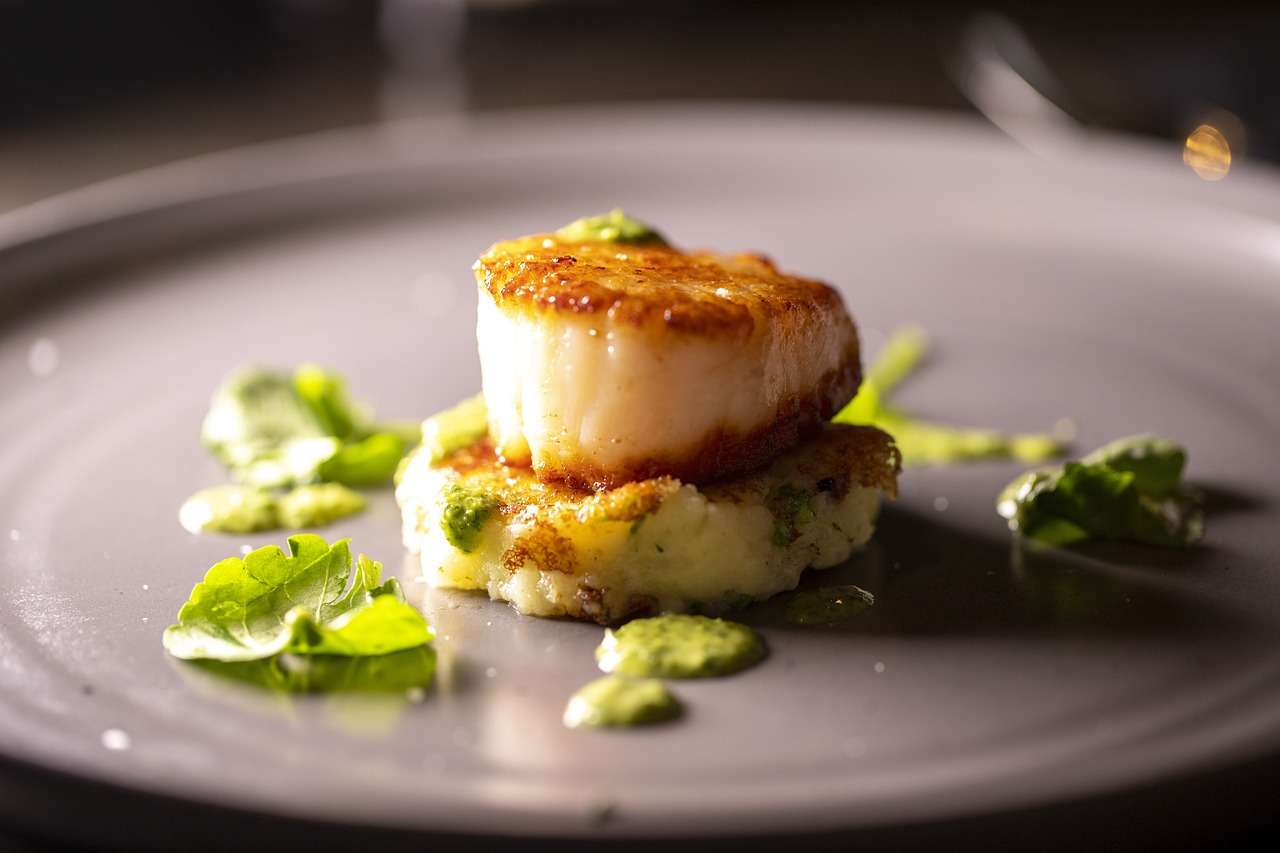
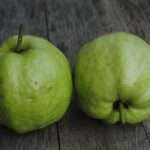


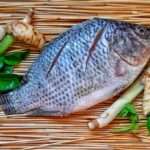

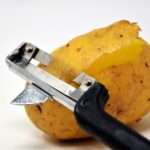
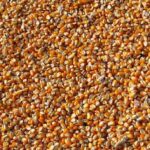


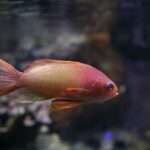
1 thought on “Can Dogs Eat Scallops? Are Scallops Safe For Dogs?”